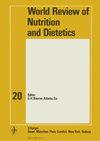Opposite ends of the spectrum: Does emotional eating present more barriers to applying mindful eating and intuitive eating strategies for females?
4区 医学
引用次数: 0
Abstract
Objective We aimed to evaluate the relationship between intuitive eating, mindful eating, emotional eating and dietary restraint behaviors and the role of gender in these relationships. Material and Method This study was conducted with 522 participants aged 18-65. Questionnaire about sociodemographic characteristics and general eating habits, Intuitive Eating Scale-2 (IES-2), Mindful Eating Questionnaire-30 (MEQ-30), and Emotional Eating and Restraint Eating Subscale of Dutch Eating Behavior Questionnaire (DEBQ) were administered to the participants. Results DEBQ Restraint Eating, and Emotional Eating subscale scores were found to be higher in women. The total scores of IES-2 and MEQ-30 were found to be higher in the group with Body Mass Index (BMI)<25, and the DEBQ Emotional Eating subscale score was found to be higher in the group with BMI≥25. The negative correlation between DEBQ Emotional Eating subscale score and IES-2 total score was weak in men and strong in women. The negative relationship between MEQ-30 total score and DEBQ Emotional Eating subscale score was moderate in men and strong in women. We found that gender had a moderator role between IES-2 and MEQ-30 total scores and between MEQ-30 total score and DEBQ Emotional Eating score. Conclusion Overweight and obese participants had lower levels of intuitive eating and mindful eating, while emotional eating levels were higher. Mindful eating and intuitive eating strategies may be concepts that represent two opposite ends of a spectrum with emotional eating, and emotional eating can be an obstacle when these strategies are administered, especially in women.与之相反的是:情绪化进食是否会给女性应用正念进食和直觉饮食策略带来更多障碍?
目的探讨直觉性饮食、正念性饮食、情绪性饮食与饮食限制行为的关系及性别在这些关系中的作用。
本研究共纳入522名年龄在18-65岁之间的参与者。采用社会人口学特征和一般饮食习惯问卷、直觉性饮食量表-2 (IES-2)、正念性饮食量表-30 (MEQ-30)和荷兰式饮食行为问卷(DEBQ)情绪性饮食和克制性饮食子量表对被试进行调查。
结果DEBQ自制进食和情绪性进食分量表得分在女性中较高。体重指数(BMI)≥25组的IES-2和MEQ-30总分较高,BMI≥25组的DEBQ情绪饮食分量表总分较高。DEBQ情绪饮食分量表得分与IES-2总分的负相关男性较弱,女性较强。MEQ-30总分与DEBQ情绪饮食分量表得分的负相关关系在男性中为中等,在女性中为较强。我们发现性别在IES-2和MEQ-30总分、MEQ-30总分和DEBQ情绪饮食总分之间具有调节作用。结论超重和肥胖参与者的直觉性饮食和正念性饮食水平较低,而情绪化饮食水平较高。正念饮食和直觉饮食策略可能是两个概念,代表了情绪饮食的两个相反的极端,当这些策略被执行时,情绪饮食可能是一个障碍,尤其是对女性来说。
本文章由计算机程序翻译,如有差异,请以英文原文为准。
求助全文
约1分钟内获得全文
求助全文
来源期刊

World review of nutrition and dietetics
Nursing-Nutrition and Dietetics
自引率
0.00%
发文量
114
期刊介绍:
Volumes in this series consist of exceptionally thorough reviews on topics selected as either fundamental to improved understanding of human and animal nutrition, useful in resolving present controversies, or relevant to problems of social and preventive medicine that depend for their solution on progress in nutrition. Many of the individual articles have been judged as among the most comprehensive reviews ever published on the given topic. Since the first volume appeared in 1959, the series has earned repeated praise for the quality of its scholarship and the reputation of its authors.
 求助内容:
求助内容: 应助结果提醒方式:
应助结果提醒方式:


